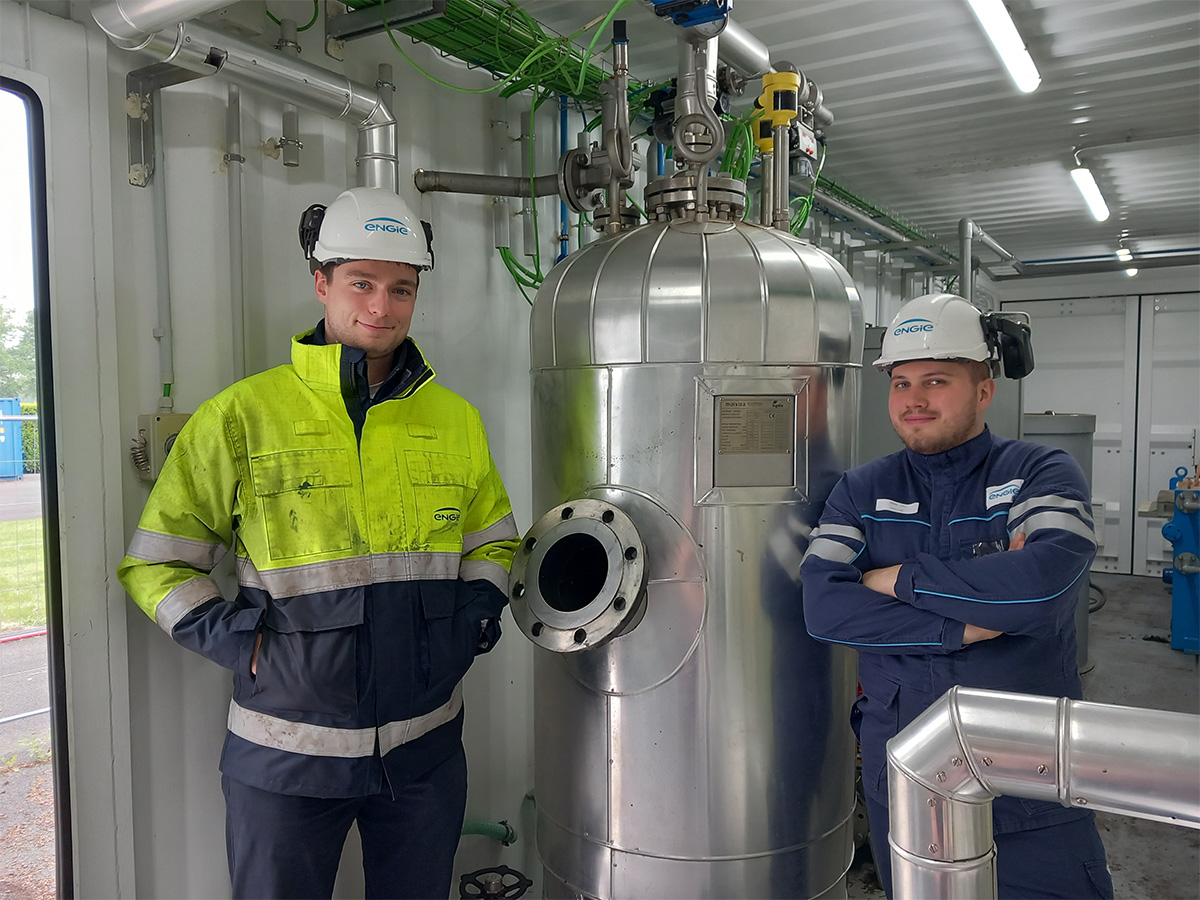
Hydrothermal carbonization (HTC) is a thermochemical process that converts wet biodegradable feedstock with low or negative value into renewable solid fuel. It involves wet biomass such as sewage sludge, compost rejection, and food residue to be cooked at a temperature of around 220°C under moderate pressure, and then dried. The result is hydrochar, a structured carbon of renewable origin resembling lignite or brown coal.
The process brings multiple synergy opportunities for ENGIE. It can, for example, be combined with an anaerobic digester, valorizing the digestate by producing a sustainable fuel from it while simultaneously increasing the biogas yield of the anaerobic digester by supplying it with the HTC process water. The hydrochar could be upgraded for use in the steel industry or valorization in CHP units or DHC networks.
This led to an HTC lab installation being built and commissioned at the Laborelec site in Linkebeek. Numerous tests were carried out in 2022 to evaluate the output quality for a range of feedstocks. Expert Aaron Maes outlines the results: “We achieved good results with most of the HTC lab tests. Analysis showed that the raw hydrochar was fit for use in DHC applications and for industrial customers.”
In addition, first attempts were made with the upgrading and gasification processes. “The upgrading shows promising results but needs to be investigated further as we have insufficient economic data. Gasification performance tests are ongoing but we expect good results.”
Further tests and research projects are carried out.
Sign up for the ENGIE Innovation Newsletter